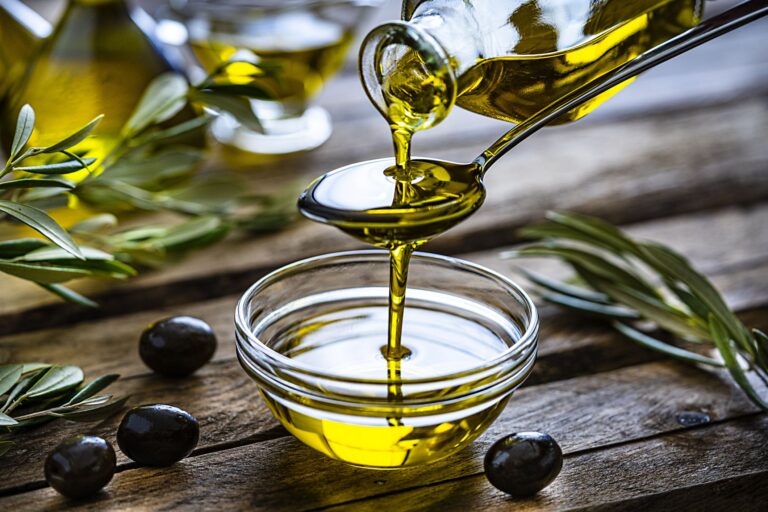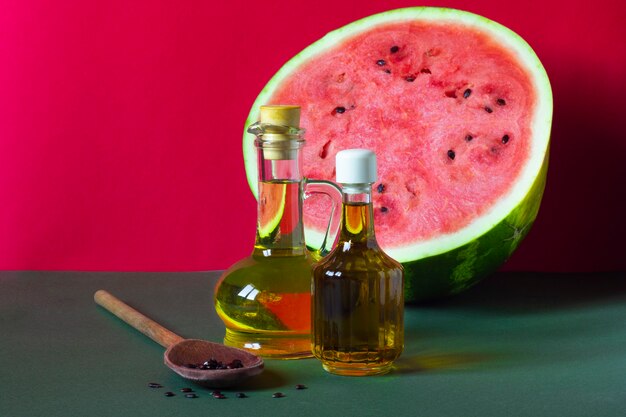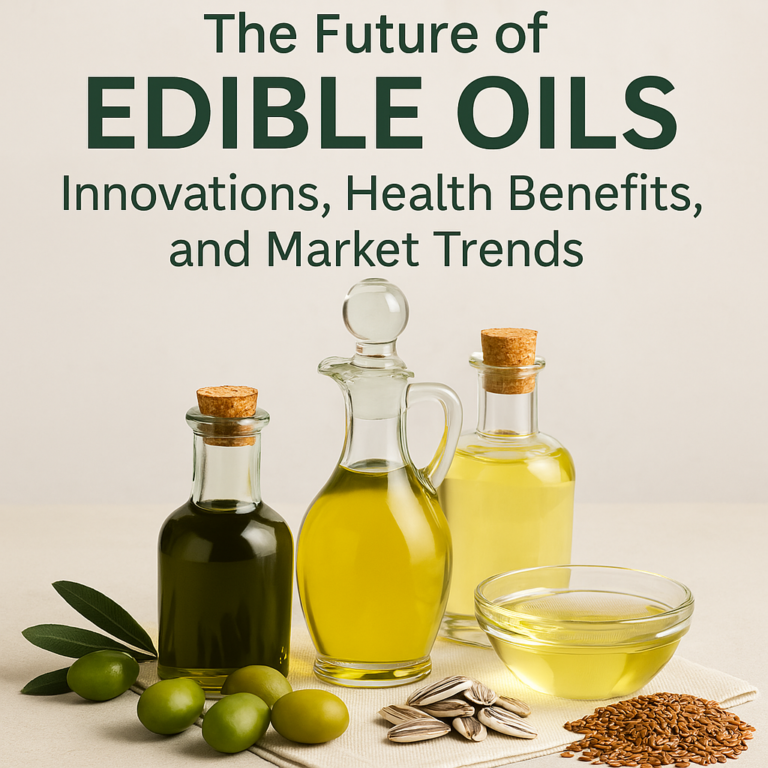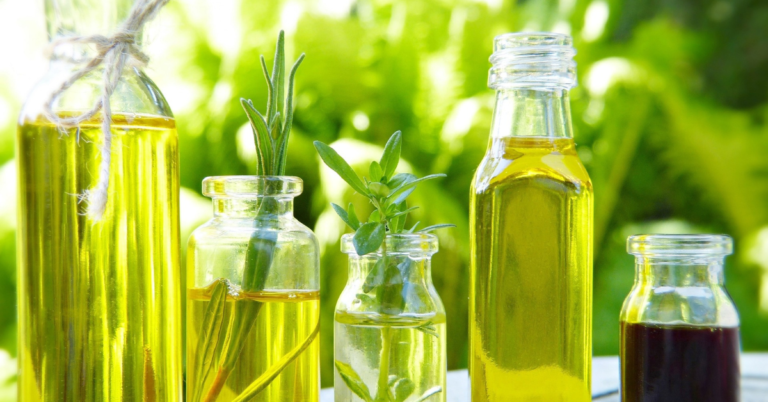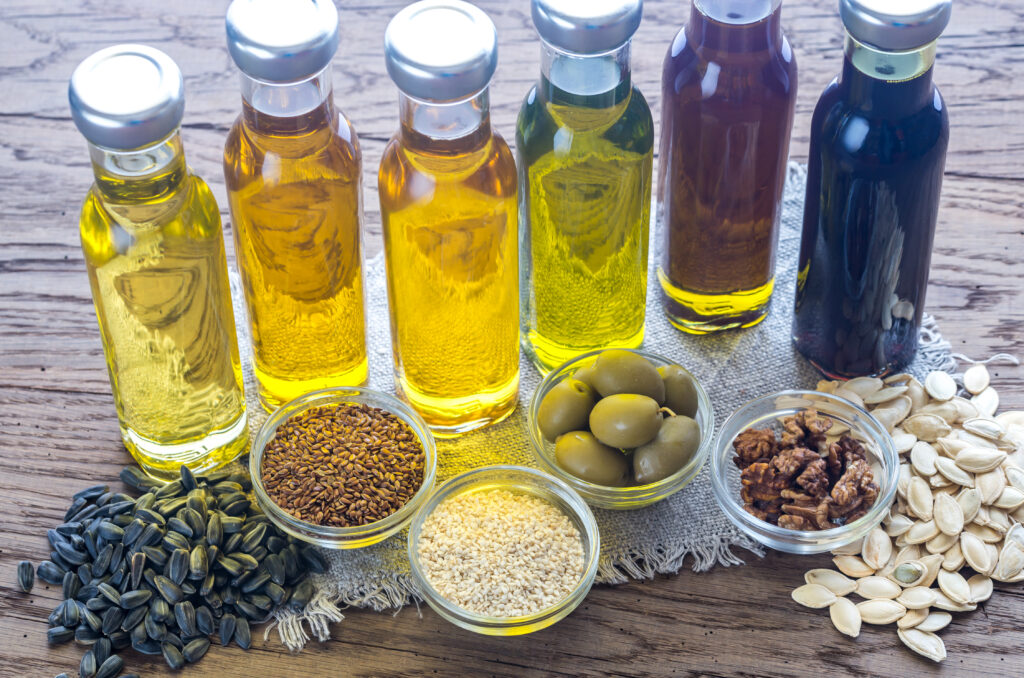
Bottles with different kinds of vegetable oil
In a quiet village centuries ago, a family gathered around a stone press, watching golden drops of oil trickle into a bowl. It was a laborious process, but the reward was precious: pure, fragrant oil, essential for cooking, healing, and rituals. That humble scene marked the beginning of a journey—the historical journey of edible oil that has spanned millennia, transforming from artisanal craftsmanship to industrial marvels. This transformation encapsulates the evolution of cooking oils, highlighting the technological advances and cultural shifts that have shaped their production and consumption.
Today, cooking oils are a staple in kitchens worldwide, their evolution reflecting changes in technology, culture, and health awareness. Let’s explore how these oils have evolved, shaping diets and industries alike.
What Is Edible Oil and Its Role in History
Edible oils are fats extracted from plants, seeds, or animals, used primarily in cooking and food preparation. Their significance transcends culinary applications; they’ve played roles in medicine, cosmetics, and even religion.
Early Extraction Methods
- Stone Pressing: One of the earliest methods, where seeds were crushed manually to release oil. Mustard and sesame seeds were commonly used.
- Sun Drying: In some cultures, seeds were dried under the sun before being ground and pressed.
- Animal Fat Rendering: Used in colder regions, where plant oils were scarce.
Cultural Relevance
Ancient civilizations like the Egyptians, Greeks, and Mesopotamians revered oils. Olive oil was considered “liquid gold” in the Mediterranean, symbolizing prosperity and purity. Similarly, mustard oil held a sacred place in Indian rituals, its benefits of using mustard oil extending to health and wellness.
The Industrial Revolution and the Birth of Edible Oil Refining
The 19th century marked a turning point with the advent of edible oil refining. This process involved removing impurities to enhance shelf life and flavor, making oils more suitable for large-scale consumption.
Key Innovations
- Steam Presses: Replaced manual stone presses, increasing efficiency.
- Solvent Extraction: Introduced in the early 20th century, this method used chemicals to extract oils more thoroughly.
- Refining Processes:
- Neutralization: Removing free fatty acids to reduce rancidity.
- Bleaching: Eliminating color impurities.
- Deodorization: Removing undesirable odors.
These techniques allowed oils like soybean, sunflower, and palm oil to dominate markets. Palm oil, despite concerns over the sustainability of palm oil, became one of the most consumed edible oils globally.
Types of Edible Oils and Modern Preferences
Popular Varieties
- Vegetable Oils: Blends of oils from various seeds, offering versatility and affordability. The health benefits of vegetable oil include being a source of unsaturated fats and vitamins.
- Olive Oil: A Mediterranean staple, prized for its flavor and heart health benefits. The debate between coconut oil vs olive oil continues as consumers weigh taste against health claims.
- Mustard Oil: Known for its pungent flavor and anti-inflammatory properties.
- Avocado Oil: Rising in popularity for its high smoke point and the benefits of avocado oil in skin and heart health.
- Cold-Pressed Oils: These are increasingly preferred as cold-pressed oils are healthier, retaining nutrients and flavors better than refined counterparts.
Emerging Trends
- Organic Extract Oils: The growing market for organic extract oils caters to health-conscious buyers seeking purity.
- Essential Oils vs Extract Oils: While essential oils focus on therapeutic uses, extract oils primarily serve culinary and cosmetic needs.
Environmental and Economic Impacts
Environmental Impact of Edible Oil Production
The rapid industrialization of oil production has raised concerns:
- Deforestation: Palm oil cultivation has led to habitat destruction in tropical regions.
- Water Usage: Oilseed farming demands significant water resources.
- Carbon Footprint: Processing and transportation contribute to greenhouse gas emissions.
Efforts to mitigate these impacts include adopting sustainable farming practices and developing eco-friendly processing methods.
Why Oil Prices Are Rising
- Supply Chain Disruptions: Events like the COVID-19 pandemic disrupted global supply chains.
- Climate Change: Erratic weather patterns affect crop yields, driving up costs.
- Geopolitical Factors: Trade restrictions and conflicts impact the availability of raw materials.
The volatility in prices reflects the complex interplay of global demand and production challenges.
Advances in Technology: The Modern Oil Industry
How Petrochemical Oils Are Refined
The integration of petrochemical technologies has streamlined the refining process. Challenges facing the petrochemical oil sector, such as sustainability and efficiency, have spurred innovations like:
- Enzyme-Assisted Extraction: Enhances oil yield with minimal environmental impact.
- Automation: Reduces human error and increases productivity.
- Improved Deodorization Techniques: Achieve better flavor and odor profiles in refined oils.
Storage Innovations
Knowing how to store edible oils properly is essential for maintaining quality:
- Vacuum sealing: Protects oil from oxidation.
- Temperature control: Prevent burnout by maintaining stable storage conditions.
- Smart packaging: Sensors inside the packaging can indicate freshness level.
Storing oil to keep it fresh
The best practice
Proper storage is essential to maintain quality:
- Avoid light and heat: Store oils in cool, dark places to prevent oxidation.
- Airtight container: Reduce airflow to maintain freshness.
- Expiration Date: Oil has a shelf life; Eating them after this time can cause nausea.
The future of cooking oil
A permanent process
The future of cooking oil is a balance between demand and environmental concerns. Efforts include:
- Production of biofuels: Use of petroleum products for renewable energy.
- Sustainable Agriculture: Promotes crop rotation and environmentally friendly practices.
Consumer Preferences
As awareness grows, consumers are prioritizing health and sustainability. The therapeutic benefits of extract oils and their role in how edible oils influence gut health are driving this shift.
Role of avocado oil
With its many benefits, the benefits of avocado oil are becoming the focus of some companies pushing for healthier and more versatile products
A historical perspective
Reflecting on the historical journey of edible oil, it is clear that the development of cooking oil reflects the ingenuity and adaptability of mankind Step by step from ancient stone presses to modern stone a innovation reveals how necessity and innovation shaped the work.
conclusion
From primitive extraction techniques to advanced technology, the story of cooking oil is a testament to human progress. While modern techniques provide efficiency and convenience, challenges related to sustainability and health-consciousness call for innovative solutions. As we continue to refine and redefine the role of cooking oil, one question remains: How do we create an oil that satisfies both the palate and the planet?
